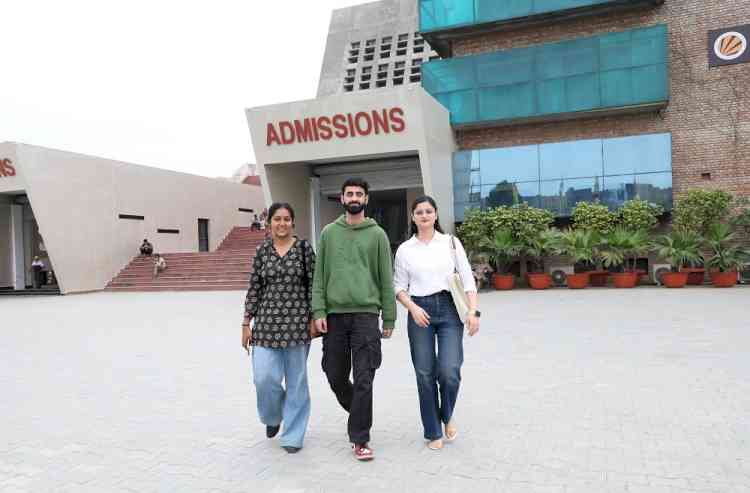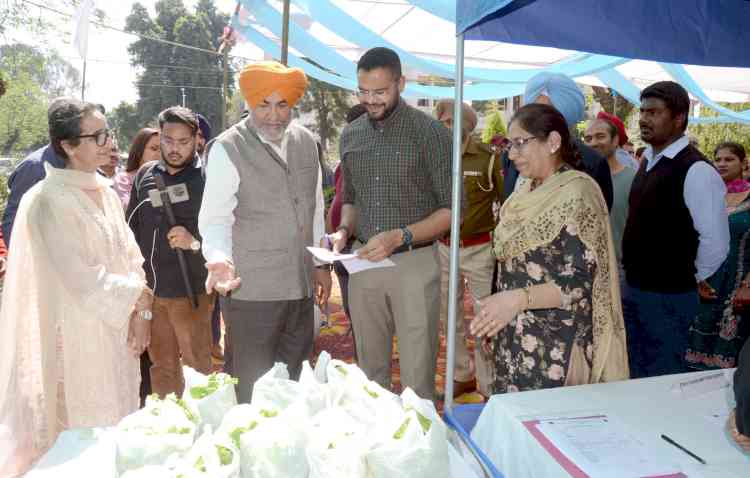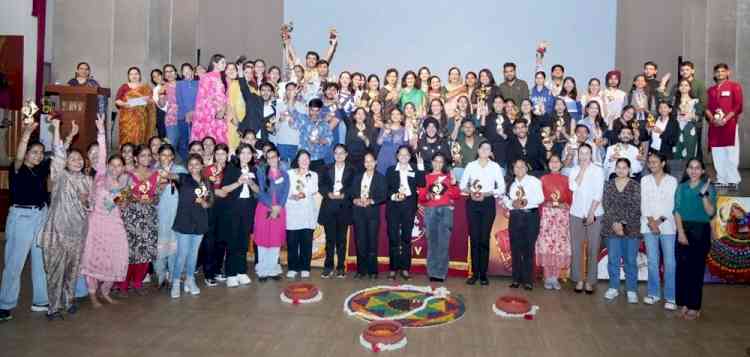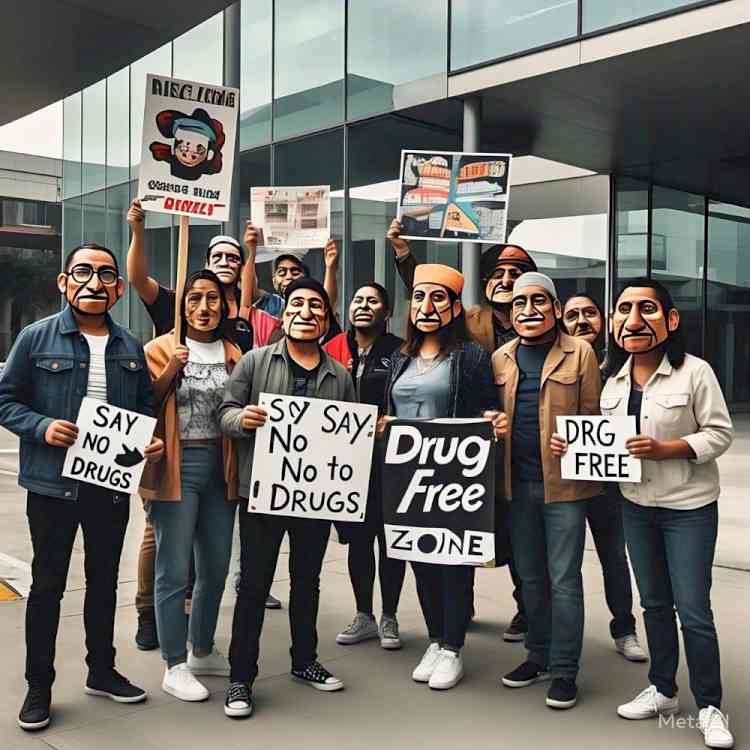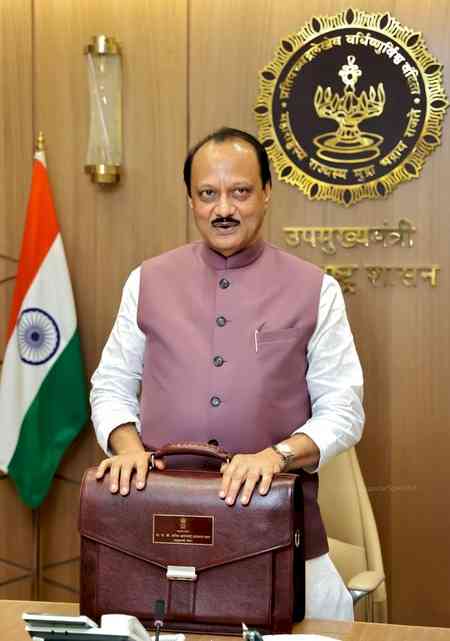Amazon Future Engineer Program Awards Top Teams at Maharashtra Hackathon
Amazon India, alongside non-profit partners Leadership for Equity (LFE) and Code to Enhance Learning (CEL), today held the culminating Maharashtra state-level event for district hackathons in Pune.
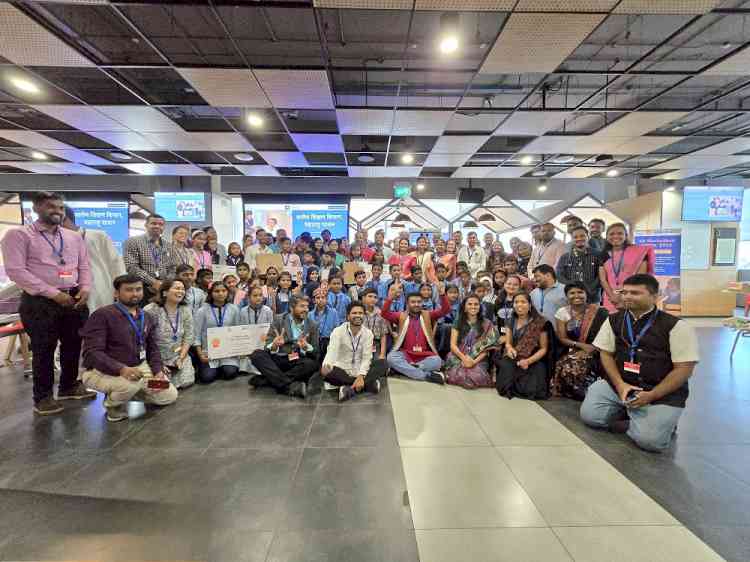
Chandigarh February 23, 2024: Amazon India, alongside non-profit partners Leadership for Equity (LFE) and Code to Enhance Learning (CEL), today held the culminating Maharashtra state-level event for district hackathons in Pune.
Over 23,000 students across grades 4 to 8 from over 890 schools from nine districts including Aurangabad, Cht. Sambhaji Nagar, Nashik, Nagpur, Pune, Kolhapur, Sindhudurg, Satara and Solapur from Maharashtra participated in district-level hackathons, culminating in this showcase of talent and innovation. Zilla Parishad Primary School Shindephal, Chat. Sambhaji Nagar, Maharashtra were the winners of the hackathon followed by Zilla Parishad Primary School Vidya Mandir Tirpan, Kolhapur, Maharashtra and Zilla Parishad Primary School Gulvanchi, Solapur, Maharashtra.
Top teams from each district presented their projects to a distinguished panel including the Shobha Khandare, Joint Director, MSCERT., Sandhya Gaikwad, District Education Officer, Pune Zilla Parishad, Rajesh Bankar, Principal, DIET Ahmednagar, Arun Jadhav, Head of Department, CPD, MSCERT, Shyam Makaranpure, Project Lead, VSK, Samagra Shiksha; Shivaji Auti, Senior Lecturer, DIET, Nashik, Akshay Kashyap, Lead, Amazon Future Engineer, Amazon India. Hosted at the Amazon office, the hackathon aimed to equip participants with advanced coding and robotics skills through workshops and collaborative project development.
The hackathon projects addressed real-world challenges faced by the students' communities, demonstrating the program's impact in empowering young minds to become problem-solvers and innovators. The winning teams were recognized and felicitated by the dignitaries, receiving recognition for their creativity and dedication. Beyond the competition, the hackathon served as a platform to nurture essential 21st-century skills like collaboration, critical thinking, and problem-solving. During the state level hackathon hosted in Pune, 42 students and 14 teachers from participating districts worked on coding projects using Scratch and Arduino kits. This immersive experience provided them with the opportunity to apply their newly acquired knowledge to solve real-world problems and contribute to their communities. Through hands-on learning experiences and meaningful interactions with industry experts, students gained valuable insights into the world of computer science and its potential to make a positive impact.
The hackathon was held alongside the Amazon Future Engineer Symposium, a gathering of the program's 11 non-profit partners in India. This symposium included a Computer Science Education Training workshop facilitated by Code.org - an international non-profit reaching 50 million plus students across the globe. The workshop aimed at equipping partners with the skills and resources to integrate computer science into regular subjects and introduce the fundamentals of teaching artificial intelligence.
Deepak Kesarkar, Minister of School Education, Government of Maharashtra said, “At the Amazon Future Engineer Program's hackathon, the future of innovation shone brightly through Maharashtra's students. This event transcends individual achievements, marking a pivotal step in our mission to cultivate collaboration, problem-solving skills, and digital fluency among our youth. A heartfelt congratulations to all the winners, participants, Amazon India and its partners for this invaluable collaboration, one with the potential to revolutionize education for generations to come.”
Shobha Khandare, SCERT Joint Director, emphasizes the crucial role of equipping educators with the right tools and resources. "Events like the Computer Science Hackathon are invaluable for teachers," she says. "They provide opportunities to enhance their skills and inspire students through hands-on, experiential learning. This aligns perfectly with our vision of fostering a culture of innovation and creativity in education." Commending the participants, she adds, "I congratulate the winners and all participants from across the districts for their enthusiasm and eagerness to learn and explore more."
Akshay Kashyap, Lead, Amazon Future Engineer, Amazon India underscores Amazon's dedication to equipping all students, especially those with limited opportunities, with the skills needed for future careers. "Technology fuels positive change, and we believe in empowering everyone to be a part of it," he says. "The Amazon Future Engineer Program's Computer Science Hackathon, starting at the district level and culminating in this state-wide competition, provides an exceptional platform for students and teachers to unlock the boundless potential of coding and innovation." He further emphasizes the crucial role of educators, stating, "Educators who embrace bringing computer science into their classrooms are key agents of change. We express our deepest gratitude to the Maharashtra government and our partners for this collaborative effort, and we look forward to future endeavors that empower all students to reach their full potential."
Amazon introduced the Amazon Future Engineer Program in India in 2021 and has partnered with several education-focused non-profit organizations, including Leadership for Equity and Code to Enhance Learning to take computer science education to more than 10,000 schools in India in the past two years. As a childhood-to-career program, AFE offerings starts with primary schooling and continues through secondary into career. Under this program, Amazon has also offered scholarships and internships to girl students interested to make a career in the tech industry. Throughout, Amazon partners with organizations that share its mission and create opportunities for students to discover the richness of computer science through intersections with self-expression, social justice, sustainability, and more. Through this program, computer science education has reached to over 1.5 million students and 8,000 educators across the nation in the past two years.


 City Air News
City Air News 
